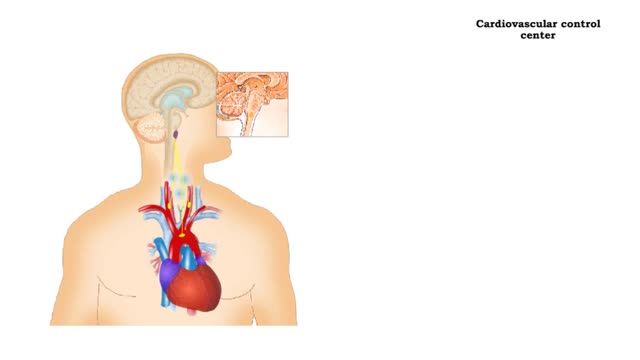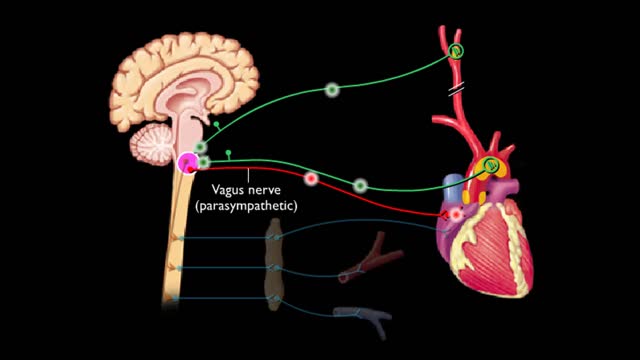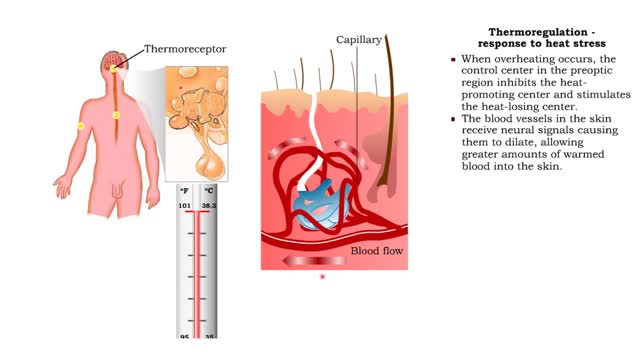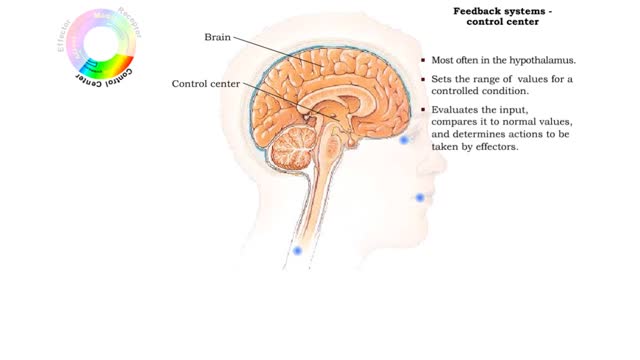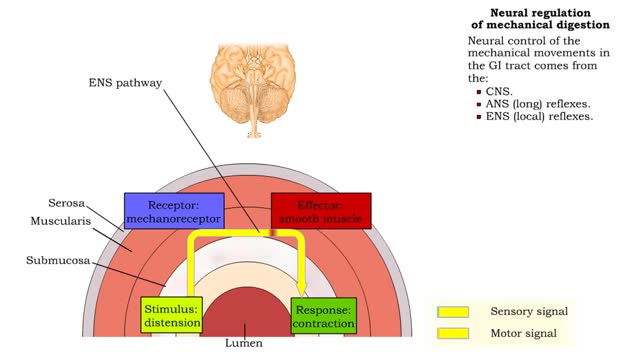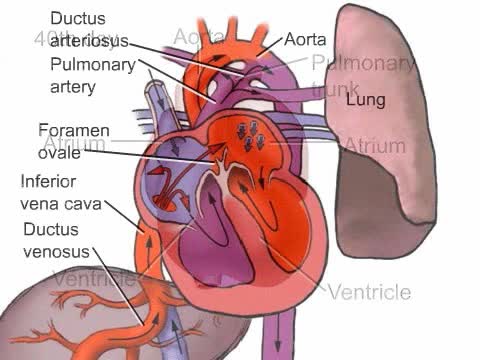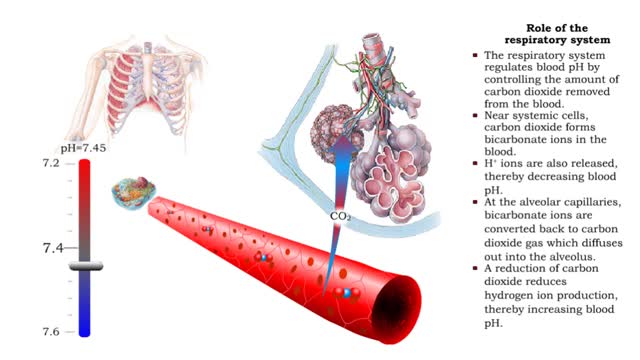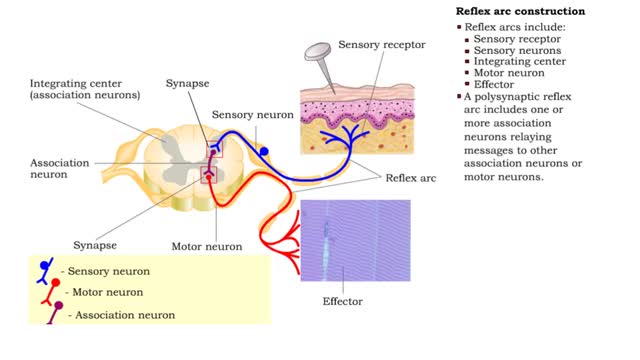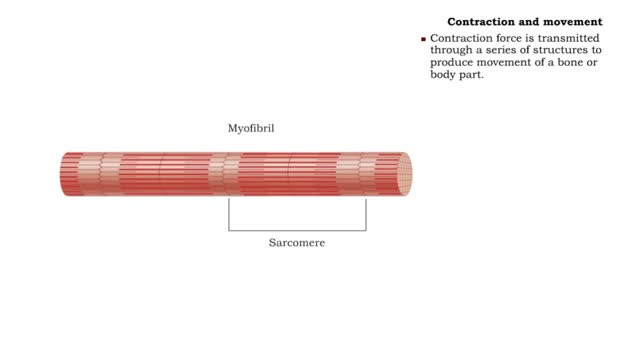Search Results
Results for: 'Cardiovascular control center'
Negative Feedback Regulation of Blood Pressure
By: HWC, Views: 11656
stimulus • Blood pressure determines the flow of blood to and from capillaries. • Low blood pressure results in reduced blood flow. • High blood pressure can cause blood vessels to break. Baroreceptors • The aortic arch carries blood to the body. • The common carotids ca...
By: HWC, Views: 10959
Baroreceptors located In the carotid sinus and the arch of the aorta respond to increases in blood pressure. Increased blood pressure stretches the carotid arteries and aorta causing the baroreceptors to increase their basal rate of action potential generation. Action potentials are conduct...
Metabolic Rate, Heat and Thermoregulation - response to heat and cold stresses
By: HWC, Views: 11920
• A neuron group in the anterior portion of the hypothalamus controls heat balance. • Neurons in the preoptic region of the hypothalamus integrate signals that come from thermoreceptors. • The temperature control center in the preoptic region propagates control signals to two other part...
Component of feedback systems & Communication and regulation of body systems
By: HWC, Views: 11859
• Primary responsibility for communication and regulation in the body is shared by the nervous and endocrine systems. • The two systems work alone or together in specialized physiological processes called feedback systems to maintain homeostasis. • Feedback systems - or loops - are ...
Neural regulation of mechanical digestion- CNS voluntary, ANS & ENS controlled involuntary movements
By: HWC, Views: 11653
• The gastrointestinal [GI] tract is basically a muscular tube that contains and processes food as it moves from the mouth to the anus. • Mechanical digestive functions consist of both voluntary and involuntary muscle contractions and relaxation including: • Chewing and swallowing food....
Fetal Development of the Cardiovascular System
By: Administrator, Views: 14363
How the heart develops in the uterus.
Role of the respiratory system - effect of altered ventilation rates
By: HWC, Views: 12282
• The respiratory system regulates blood pH by controlling the amount of carbon dioxide removed from the blood. • Near systemic cells, carbon dioxide forms bicarbonate ions in the blood. H+ ions are also released, thereby decreasing blood pH. • At the alveolar capillaries, bicarbonate io...
By: HWC, Views: 11749
• Somatic reflexes are the rapid, predictable, and automatic responses of skeletal muscle to changes in stimuli. • A reflex arc is the pathway followed by the nerve impulse producing the reflex. • Reflex arcs include: • Sensory receptor • Sensory neurons • Integrating c...
Contraction cycle of a sarcomere
By: HWC, Views: 12168
• A single nervous signal releases Ca2+ ions into the sarcoplasm and initiates the contraction cycle. step 1. ATP hydrolysis • ATP provides the to move myosin molecules back into the energized configuration necessary to perform the power stroke. Step 2. Crossbridge attachment • Myosin...
Advertisement



